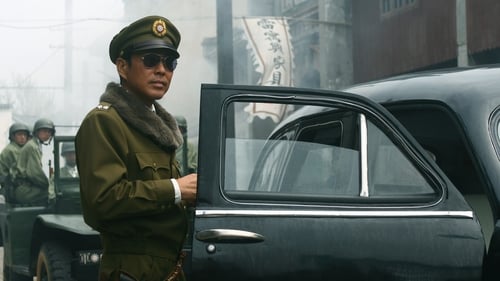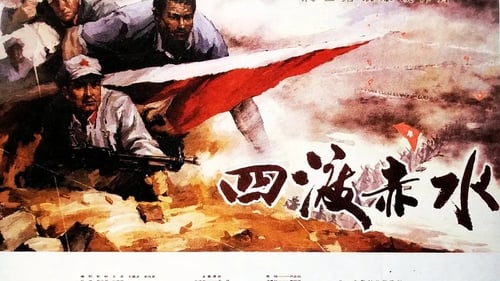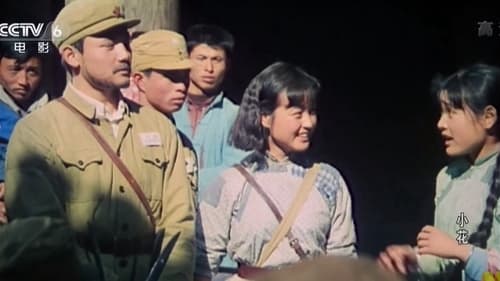Tang Guoqiang
Nacimiento : 1952-05-04, Qingdao,Shandong,China

毛泽东
In the early days of the founding of the People's Republic of China in 1949, New China was faced with "internal and external troubles". Since the outbreak of the Korean Civil War, the U.S. military has repeatedly provoked the border between China and North Korea, and civilians have been brutally bombed. In order to maintain the hard-won peace and long-term stability for generations, in October 1950, the Chinese People's Volunteers entered North Korea, and the "Resist US Aid Korea" war kicked off.

Mao Ze Dong
Los soldados chinos ganaron la batalla en el lago Changjin, también conocida como la batalla del embalse de Chosin, en condiciones climatológicas extremas. La lucha entre Estados Unidos y China, que tuvo lugar desde el 27 de noviembre al 24 de diciembre de 1950, es considerada como una de las batallas más violentas de la Guerra de Corea.

Mao Zedong
From September 13 to October 16, 1949, the soldiers of the Fourth Field Army of the Chinese People's Liberation Army (PLA) ushered in the founding of the People's Republic of China with their lives and blood in the Battle of Hengbao, which spanned the founding ceremony of the People's Republic of China.

Mao Zedong

Mao Zedong
1973. Old revolutionary Zhou Enlai, elected Mao's successor, returning to the holy land of Yanan. Recalling the major historical events of the 13-year period of the Chinese revolution in the Yanan period, it showed the feelings and feelings of Premier Zhou Enlai

Mao Zedong
The film passes through two periods of Deng Xiaoping serving as the Secretary of Ruijin County Party Committee in 1930 and his comeback in 1973.

Producer

Mao Zedong
The film is based on the story of the formation of the Red Army intelligence advance team when the leaders of Guizhou Province went to Beijing in 1964 to ask Chairman Mao to write the "Zunyi Conference Site". The small team overcame numerous difficulties, fought with the enemy wits and bravely, and finally obtained valuable information and time for the Red Army with a weak force, thereby winning the victory at Loushan Pass and reversing the shocking story of the Red Army’s passive situation in the Long March.

毛泽东

Mao Zedong
After the end of the three major campaigns, the situation in China has undergone fundamental changes. Before the Kuomintang forces withdrew from Peiping, they adopted a series of psychological policies for the literary and art circles, hoping that they would also leave Beiping together. The leaders of the Communist Party of China, such as Mao Zedong, who was far away from Xibaipo, also paid great attention to the people of the literary and art circles in Beijing. They sent Tian Han and other comrades to appease and sympathize. The Kuomintang and the Communist Party launched a silent war against the literary and art circles.

Mao Zedong
Película para conmemorar el 60 aniversario de la fundación de la República Popular China, con un buen número de estrellas del país representando pequeños papeles o diferentes roles.

This film tells the story of Zhang Si De, a model of the Chinese People's Liberation Army. In the late period of the War of Resistance Against Japan, Yan'an was in a mass production movement. The service soldier Zhang Si De (Wu Jun) is honest, unspoken, never invites merits for doing good things, works hard and never complains, and devotes himself to the Chinese revolutionary cause.

毛泽东

After the victory of the Anti-Japanese War, Chiang Kai-shek stepped up efforts to eliminate dissidents, and first targeted Long Yun, who was in power in Yunnan and had progressive ideas.

Wreaths at the Foot of the Mountain is a 1984 Chinese film about the life of the soldiers in a PLA army company before, during and after the Sino-Vietnamese War.

Lu Qinsong
The Red Army and Nationalist forces battle over the Chishui River in 1935.

Zhaoshutun (the Prince)
Tells the story of a corrupt emperor, his bigoted philosophies, and the princess who convinces him to change his evil ways.

Hunan boy Zhu escapes from local tyrants chase, joins the Hunan troop and gets promoted soon. The superior recommends Zhu to the military school where he meets undercover CCP Cheng Kang. Zhu participates in the Northern Expedition after graduation and joins CCP later.

In the winter of 1948, the Huaihai battlefield. The telephone operator Yuxiang (played by Huang Xiaolei) rescued the rural girl Yuxiang (played by Li Xiuming) who was about to hang herself during the mission. Yuxiang has nothing to do with her, and she is willing to accept her personally and tell her sufferings of being homeless.

赵永平
This movie is adapted from the novel Heroes in Tongbai. Xiao Hua, a sister of Zhao Yongsheng, is deserted by her poor family. He Xiangdong, a woodworker, adopts her and rename her He Cuigu. To steer clear of arrest by the enemy, Dong Hongguo, offspring of a revolutionary family, is renamed Xiao Hua so as to be adopted by her adopter. Later, Zhao Yongsheng's parents are killed by the enemy, he joins the Liberation Army. In 1947, when Zhao Yongsheng returns to his own village Tongbai, his sister Xiao Hua happens to find her brother. Doctor Zhou who works in the hospital of the army, adopts Xiao Hua without knowing she is her own daughter. He Cuigu has become a well-known guerrilla hero after she grows up. She doesn't recognize her brother Zhao Yongsheng when she carries him on the stretcher. After the war, Zhao Yongsheng, Xiao Hua and Cuigu meet each other happily; Dong Xiangkun and Doctor Zhou also feel happy to reunite with their own daughter after 17 years of departure.

李铁成
On a summer night in 1975, a military train sped through the north-east of the country.

Yu Hualong
Dramatic representation of the Battle of the Paracel Islands (1974) between the China and South Vietnam.

Yu Hualong
Set in the early 1970s, enemy warships encroach the islands of South China Sea frequently. The Chinese Navy fights the enemy and protects the islands and people from invasion.















